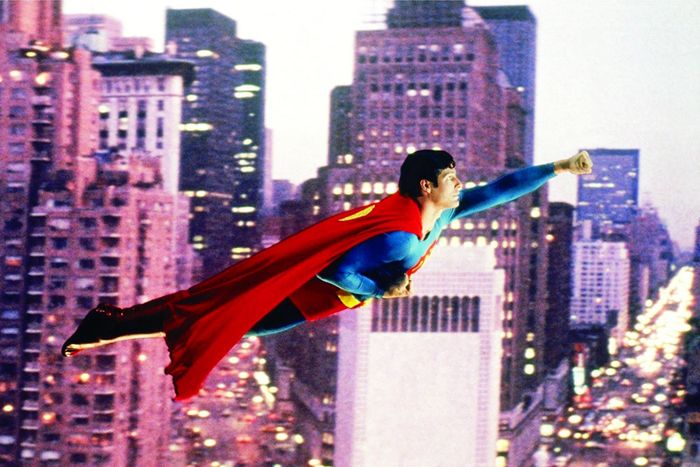
Traffic-choked streets and grimy tenement hallways. Gunfights and car chases. Mobsters, street gangs, urban blight, pervasive corruption. Plainclothes cops chasing suspects through alleyways and beating them senseless. This was the dominant mode of New York cinema in the 1970s, and the all-is-lost vibe produced countless masterpieces steeped in cynicism, paranoia, and mayhem, from The Godfather and Mean Streets to Dog Day Afternoon and Taxi Driver to late-decade milestones like All That Jazz and The Warriors. A friend calls them “burning-trash-can movies” because no matter what the plot, they were likely to contain at least one shot of a bunch of guys warming their hands over a burning trash can.
But there was a countermovement happening in the ’70s that produced nearly as many pictures as the doom-and-gloom mode. These movies weren’t about mean streets but clean streets. That’s not to say the settings were immaculate, but the worldview was rosier. A character might get splashed with mud or even lose a pocketbook to a mugger. But these setbacks wouldn’t be presented as indications of wider sociopolitical failures, much less a lack of faith in the American Dream; they would be depicted as the sort of incidents that could happen anywhere, and that hurt less because they happened in the greatest city in the world.
Comedies and romances were the vanguard of clean-streets cinema. Adaptations of Neil Simon’s stage comedies about white ethnic chatterbox New Yorkers were a mainstay, generating such hits as Plaza Suite (1971), The Sunshine Boys (1975), and The Goodbye Girl (1977). The number of Midwest relocations inspired by the last (from the central romance down to the main character’s spacious Upper West Side apartment) is incalculable.
And while the ’70s is thought of as a macho, often nasty decade, the city was at the forefront of films that put smart, independent women at the center of their stories. Jill Clayburgh starred in 1978’s An Unmarried Woman, about an Upper East Side socialite who separates from her cheating husband (Michael Murphy) and navigates the sexual politics of the era. Actor-director Mike Nichols poured battery acid on rom-com expectations with 1971’s Carnal Knowledge, but his former comedy partner Elaine May demonstrated a much lighter (though no less sardonic) touch that same year with A New Leaf, a romance starring Walter Matthau as a dissolute Manhattan playboy who must marry to avoid penury; May is the heiress he romances and plots to kill (yes, it really is a comedy — and it’s set in Queens and on Long Island, too). The divorce drama Kramer vs. Kramer seems the odd film out here, as it’s certainly as bitter as it is sweet, but it’s definitely a clean-streets movie par excellence, and the long mid-section in which Dustin Hoffman’s suddenly single father has to learn to take care of his son (Justin Henry) is what made it a smash hit. It’s a little feel-good parent-child love story.
As male-driven blaxploitation crime dramas and action-adventures made an impact at the box office in the ’70s, filmmakers also secured funding for Black-led romances and musicals, including 1974’s rooted-in-reality heart-warmer Claudine, starring Diahann Carroll as a single mother on welfare and James Earl Jones as the garbage collector she falls for; 1976’s Sparkle, a gloss on the history of the Supremes (relocated from Detroit to Harlem) that starred Philip Michael Thomas as a Berry Gordy–like figure and Irene Cara, Lonette McKee, and Dwan Smith as the sisters he guides to stardom; and Lady Sings the Blues, a biopic of Billie Holiday that earned an Oscar nomination for Diana Ross.
Literally soaring above the rest was the first studio-produced superhero epic, Superman: The Movie (1978), which made a star of Juilliard graduate Christopher Reeve and inspired countless future films’ (E.T., Hook, The Aviator) nighttime flight sequences. Superman arguably set the stage for ’80s pictures like Ghostbusters, Tootsie, My Favorite Year, and Scrooged, which treated New York as a magical place where charming and incredible things happened. The “I HEART NY” campaign really began here.
More Reasons to Love New York
- 60 Stars, 50 Seasons, 5 Panels
- 39 Reasons to Love New York Right Now
- Saturday Night Live Is How We Talk With America


